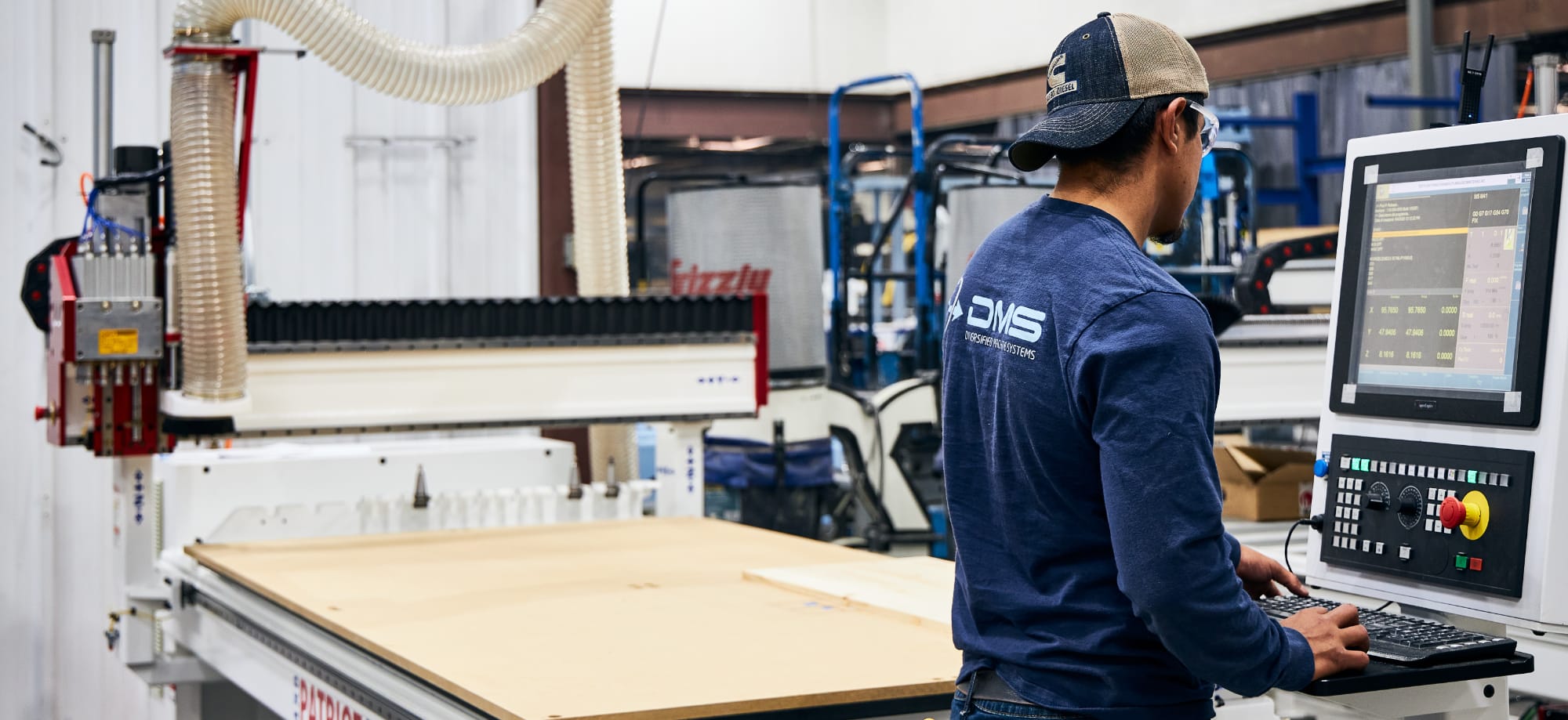In manufacturing, investing in your team of machinists is just as important as any investment you make in your machines. Your operators are at the center of everything you do, and the quality of your finished product ultimately comes down to one thing—the people you employ.
Unfortunately, finding the right people isn’t getting any easier. Recruiting, training, and retaining machinists is hard work, especially as the skills gap continues to grow. CNC operators need several kinds of expertise to get the job done. They need to know their way around machines, but they also need to have a good head for numbers and programming. Attention to detail is a must, as is the ability to troubleshoot in real-time.
Needless to say, these aren’t traits that most people are born with—they are cultivated over time. At DMS we’ve seen that hiring the right staff is important, but ultimately what matters most is fostering a work environment that empowers each operator to rise to their highest potential. To bridge the skills gap, we recommend applying these three principles:
Prioritize Experience over Expertise
The CNC world is constantly evolving, so your team must evolve too. Just because an operator took a machining course five years ago, doesn’t mean he is ready to apply new technologies. Just because a machinist was performing well at the start of her career, doesn’t mean she is necessarily equipped for today’s demands. In the machining world, expertise is never set in stone. Machine operators need to keep growing, learning, and honing their skills, especially as new technologies are introduced to the shop floor.
For up-and-coming operators, this can be seen as an opportunity. Machinists can signal their value to prospective employers by showing an aptitude for learning and a commitment to improving their skills. Over time, operators who prioritize learning from experience will prove more valuable than operators who think they already know everything there is to know.
Invest in Additional Training
Many OEMs provide specialized training for manufacturers, either by setting up a virtual meeting or by sending experts to train on location. DMS has offered remote and in-person trainings for decades, and we have seen firsthand how valuable they are in cultivating a team of skilled manufacturers.
Trade shows and exclusive events can also be beneficial in introducing new technologies and educating people. Events like these are a chance for operators to learn from each other and to broaden their horizons with exposure to other machines and machinists. We’ve said it before and we’ll say it again: when you provide resources for your team, you are investing in the future of your business.
Empower Your Resident Experts
Your resident experts are the best (and, in some cases, the most underutilized) resource in training other operators. These are the people who know your particular machines and setup better than anyone, and they can go beyond theoretical information to offer real-world solutions to up-and-coming operators.
Admittedly, seasoned machinists can be introverted or even a tad bit standoffish—it’s the nature of the job, working with machines all day. But those same machinists can be the most generous teachers when given the opportunity. Pairing new operators with seasoned ones raises the water level for your whole team, rewarding skilled craftspeople with recognition and leadership opportunities, while giving newbies the chance to grow under someone else’s tutelage.
Manufacturers that intentionally invest in their CNC operators with experience, training, and expertise can go a long way toward mitigating the skills gap. Instead of waiting on the perfect resume, they take things into their own hands by cultivating the staff they’re looking for.


